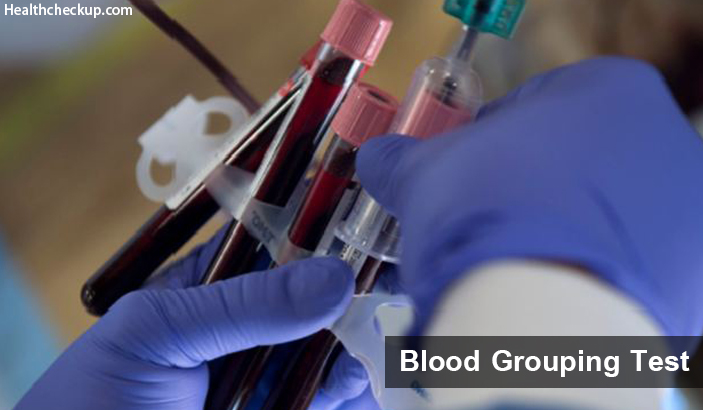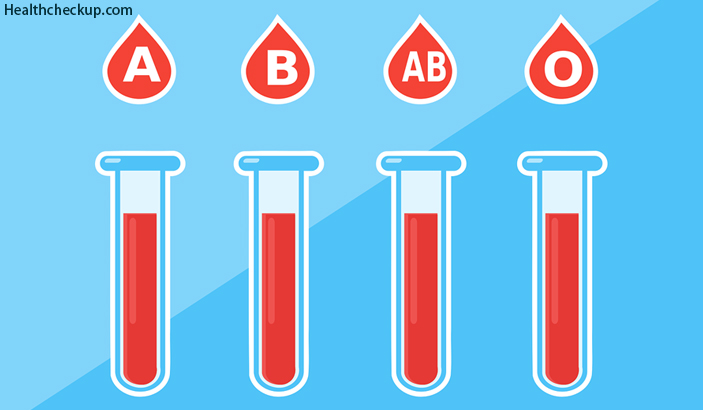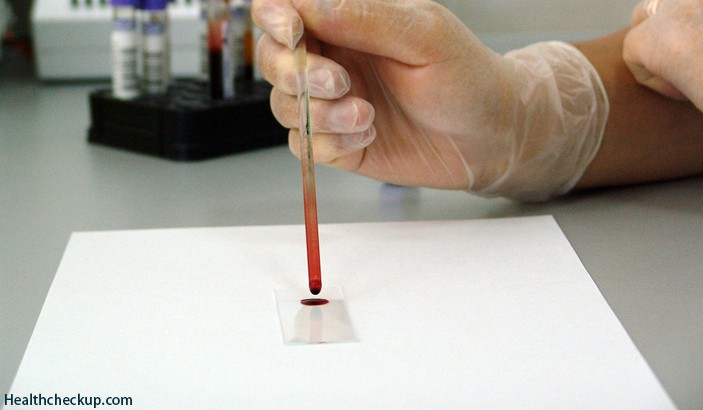It is very important for every person to know their own blood group and also that of their family members. There are many occasions on which knowing your blood group or blood group check can come in handy such as an accident in which you or your family member requires blood transfusion due to heavy loss of blood during an accident.
Knowing your blood group in advance would save the hospital valuable time because they do not have to wait for your blood grouping test reports. If you’re traveling overseas, carrying a blood group card could help in emergency situations, and help in getting medical help faster.
Principle Of Blood Grouping
The human blood consists of 4 main components, the red blood cells, the white blood cells, the plasma and the platelets. The red blood cells are the components that help in determining a person’s blood type. The ABO system is the main blood grouping system behind the principle that helps classify people into one of the following four groups, i.e., A, B, AB or O.
The blood groups are classified based on the presence or absence of a particular antigen. An antigen is a foreign substance that induces an immune response in the body either alone or after forming a complex with a larger molecule. When the antigen A is present on the red blood cells, then the person is said to have Type A Blood. A person having antigen B on the red blood cells is considered to have Type B Blood. When both antigens, A and B are present on the red blood cells, then the person’s blood type is classified as AB. When neither antigens, A nor B are present, the person is said to have Type O Blood.
This is called the basic grouping system and can further be classified to 8 groups considering the Rhesus factor or ‘Rh’ factor. The name Rhesus originated from the Rhesus monkeys in which the antigen was first found. If the Rhesus factor D is found in the blood, then the person is said to be Rhesus positive, and for people who do not have the Rhesus factor D, they are said to be Rhesus negative.
So, when people are classified according to both systems, they are said to have AB positive blood or O negative blood for example.
The Rhesus factor plays an important role during pregnancy because an infant’s life can be threatened if the infant inherits a Rhesus positive blood type from the father, while the mother’s blood is Rhesus negative. This will cause the mother’s body to form antibodies against the baby’s blood.
Blood Donation and Transfusion
The testing of blood group is necessary for safe blood transfusions. A patient should always receive a blood type that is compatible with his own blood type. If the blood types are not compatible, it will result in red blood cells clumping together and forming clots in the blood vessels and restricting blood flow within the body, eventually leading to the death of the person.
Here are Some of the Combinations of Blood Group Types that are Compatible:
- A person with type A blood is permitted to donate blood to persons with blood types A or AB.
- A person with type B blood will be able to donate blood to persons with blood types B or AB.
- Persons with type AB blood will only be able to persons with the same blood type.
- Persons with type O blood will be able to donate blood to persons with any blood type, and are therefore referred to as ‘Universal Donors.’
- Persons with the blood type AB are able to receive blood from people with any blood type, and are therefore known as ‘Universal Recipients.’
People Who Can Donate Blood and People Who Cannot
Usually, people aged between 17 and 70 and who weigh at least 50 Kgs are deemed capable of donating blood if they are in good health. But sometimes, people may not be able to donate blood if:
- A woman is pregnant
- A person has a cough or an active cold sore
- The person has donated blood within the past 12 weeks
- A person is on antibiotic medication or has just finished the course
- A person is infected with HIV, Hepatitis B or Hepatitis C
ABO Blood Grouping Test Procedure
The ABO blood group of a person depends on whether his red blood cells contain one, both, or neither of the 2 blood group antigens A and B, and therefore the human blood groups are differentiated as type A, type B, type AB, or O as mentioned earlier.
Antibodies for the antigens A and B exist naturally in the plasma and these are referred to as anti-A and anti-B. The matching antibody and antigen are never found in the same individual as they form antigen-antibody complexes when mixed, causing agglutination in the blood.
The Blood Grouping Test is Carried out as Follows:
- A clean slide is taken, and one end of the slide is labeled as ‘Anti-A,’ and the other end is labeled as ‘Anti-B.’
- A drop of Anti-A test serum is dropped on the end of the slide marked ‘Anti-A,’ and a drop of Anti-B test serum is added to the end marked ‘Anti-B.’
- One drop of blood of the person, whose blood type is to be tested, is added to each end of the slide and mixed well using small wooden sticks.
- The results can be read directly from the slide. The person’s blood type is A if agglutination occurred with the Anti-A test serum, similarly, the blood type is B if agglutination occurred with the Anti-B test serum. The blood type is AB if agglutination occurred with both the test serums, O if no agglutination occurred in either case.
The blood type of a person can be determined in a few minutes with this test. Similarly, Rh typing is done by mixing the blood sample with an anti-Rh serum. If the blood cells clump together in response to the anti-Rh serum, it indicates that the blood is Rh-positive. If no clumping occurs, the blood is determined to be Rh-negative.
Thus, a blood grouping test is very important for every individual to help know his blood group and Rh-type as it will be convenient for healthcare providers to provide medical care immediately in case of an emergency. It is also useful to know your blood type if you wish to donate blood to a dear one in case of emergency.
Medically Reviewed By

I am an experienced Medical/Scientific writer with a passion for helping people live a happy healthy life. My thirst for writing has followed me throughout the years – it is there when I wake up, lingering at the edges of my consciousness during the day, and teases me at night as I go to sleep.











